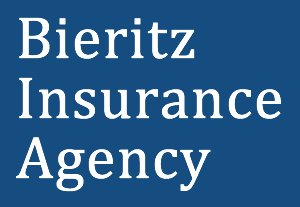The Two Types Of Insurance Deductibles And What They Mean To You
Home, life and auto insurance consists of paying providers in premiums and deductibles. A premium is your monthly fee for the insurance. Without insurance, you are left to foot a huge bill for injuries, accidents and property damage if you are held liable. Premiums basically have you pay monthly so that when something serious does happen, you only pay a smaller, fixed amount of money, which is the deductible.

What Is An Insurance Deductible?
For those that need a better understanding of what an insurance deductible is, it is how much money that you would have to pay in the event of damage or a loss. Some examples of having to pay a deductible would be if you are responsible for causing a car accident, if you drive through somebody’s fence, etc.
You might have an insurance policy that costs 50 dollars a month, with a deductible of $500. That means you will have to pay just $500 with the rest of the expenses being paid for by the insurance company. For auto, this is to not just promote responsible driving, but to also spread the cost of damages evenly between drivers and their insurance providers.
You can buy insurance with a high or low deductible, but whatever type of deductible you get, you get a fixed premium that reflects it. If you, for instance, choose a low monthly payment or premium, the deductible goes up, meaning that you will have to pay more in the event of an accident or damaged assets. If you choose a high premium, and pay more each month for insurance, your deductible will typically be lowered. The relationship with premiums and deductibles has a teeter-totter effect to it.
When considering a high or low deductible, however, there are many factors to consider. Choosing your deductible is a pivotal personal and financial decision that should define what meets your needs the best.
Insurance plans are essentially based on risk, with both the provider and the consumer in an agreement to assume a degree of risk. Provider can have multiple insurance plans available, both that have high deductibles when an insurance claim is submitted, as well as high premiums.
The insurance plan that is best for you depends on a number of factors including your financial commitments and expected income. Before signing an insurance contract, it is important to be able to have the money available to cover deductibles, medical bills, rental cars, co-payments, and/or anything else.
High Deductible
High deductibles are more favorable to consumers thanks to the low monthly payments. Paying for a higher deductible might be worth it for people that avoid having to drive long distances and in high-traffic areas. High deductibles are also worth it for people that have the cash saved up in case of such an event.
Will the money that you save with a low monthly fee be worth the higher risk with a high deductible? High deductible are worth it for people who want to be rewarded for driving safely and have money on reserve in the event of an accident or damaged assets.
Low Deductible
Some people decide that it is worth it to pay more in premiums per month and get a lower deductible in return. If an accident or anything were to happen to your property, you would have to pay less out-of-pocket.
Low deductibles are ideal for young drivers who are still getting used to driving or are driving rather reckless. Low deductibles are also better for repeat offenders. People who drive recklessly are more likely to get into an accident than people who drive safely, so having an insurance plan with a low deductible will be the better of the two choices.
Choosing Between High And Low Deductibles
If you are still contemplating high and low deductibles, you should consider your current financial situation as well as your driving record to determine what sort of insurance plan you should go with. If your driving record is spotless and have been driving for longer than ten years, there is a chance that you can lower your deductible without raising your monthly premiums. When reviewing insurance policies, you should come across choices in deductibles such as 250, 500, 1,000 and 1,500 dollars. If you’ve never had an accident, it makes sense for you to choose a high deductible. Otherwise, you likely want a low deductible if there are a few blemishes on your driving record.
Conclusion
Both types of deductibles can be good to have, and we do not consider one to be better than the other. Both types of deductibles can be seen as advantageous depending on financial situations, security and driving habits, and the needs of either vary depending on the customer. If you have questions about deductibles or any of your insurance plans, contact our team at Bieritz Insurance for an appointment. We will be happy to provide the information and options you require for the best plan possible.

